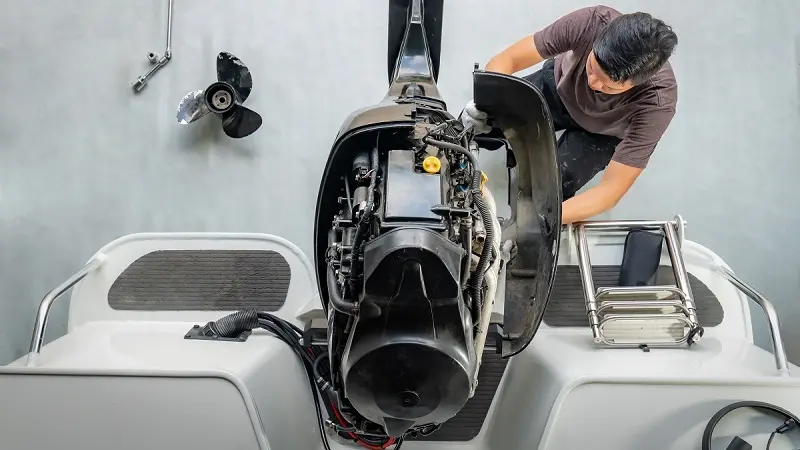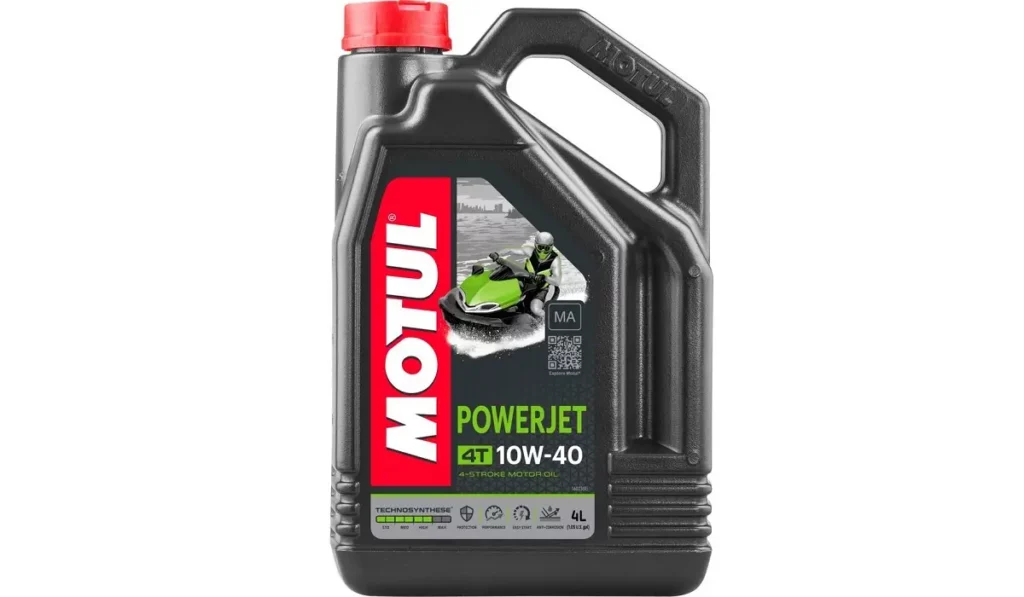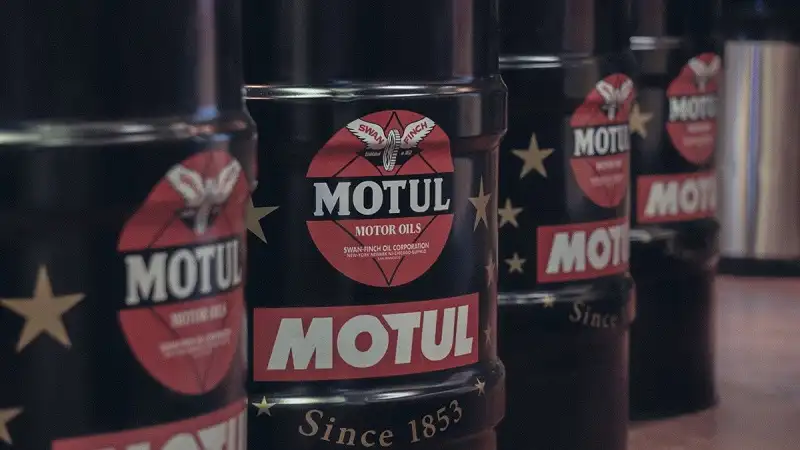Maintaining a marine engine requires careful attention to various aspects, and one crucial factor that often goes overlooked is selecting the right marine oil. While it may seem like a mundane task, choosing the appropriate marine oil for your marine engine can significantly impact its performance, reliability, and longevity. Just as our bodies require specific nutrients for optimal function, marine engines rely on the proper oil to keep their engines running smoothly on the open water.
In this blog post, we will guide you through the process of selecting the ideal marine oil for your marine engine. We’ll explore the key factors to consider, such as understanding your marine engine’s requirements, evaluating different oil types, assessing performance ratings, considering additional factors, researching brands, and establishing regular maintenance routines. By the end of this article, you’ll be equipped with the knowledge to make an informed decision and ensure that your marine engine receives the care it deserves.

Understand Your Marine Engine’s Requirements
Before going any deeper into the world of marine oils, it’s essential to understand the specific requirements of your marine engine. Every marine engine has unique characteristics and operating conditions, and using the right marine oil tailored to those requirements can optimize performance and ensure longevity. Here are some key points to consider:
Manufacturer Recommendations
Start by consulting your marine engine’s manual or contacting the manufacturer to find the recommended specifications for oil type, viscosity, and grade. Following the manufacturer’s guidelines ensures compatibility and enhances the overall performance of your marine engine’s engine.
Oil Viscosity and Grade
Understanding oil viscosity is crucial as it determines the oil’s resistance to flow at different temperatures. Typically denoted by numbers like 10W-30 or 20W-50, the first number (e.g., 10W) represents the oil’s viscosity in cold temperatures, while the second number (e.g., 30 or 50) indicates its viscosity at operating temperature. Choose the viscosity that aligns with your marine engine’s engine requirements and the climate conditions you’ll encounter.
Two-Stroke vs. Four-Stroke Engines
Determine whether your marine engine’s engine is a two-stroke or four-stroke engine. Two-stroke engines require specific two-stroke marine oil such as our Motul Powerjet 2T oil. Packed with all the right additives, this semi-synthetic marine oil is designed to protect your engine and deliver supreme performance.
On the other hand, four-stroke engines typically use separate oil for lubrication. This is where our Motul Powerjet 4T comes into play. Based on our Technosynthese technology, this semi-synthetic marine engine oil provides excellent protection even under the harshest conditionts.
Consider the Oil Type
When choosing marine oil for your marine engine, you’ll encounter two main types: mineral-based oil and synthetic oil. Each type has its own characteristics, benefits, and considerations. Let’s delve into the details:
Mineral-Based Oil

Mineral-based oils, also known as conventional or traditional oils, are derived from crude oil through refining processes. They have been used for decades and offer several advantages:
- Cost-effective: Mineral-based oils are generally more affordable compared to synthetic oils, making them a budget-friendly option.
- Adequate Protection: They provide sufficient lubrication and protection for most standard marine engines.
- Widely Available: Mineral-based oils can be easily found at marine supply stores and other retail outlets.
However, there are a few considerations with mineral-based oil:
- Reduced Performance: They may not provide the same level of performance and protection as synthetic oils, especially in extreme operating conditions or high-performance engines.
- More Frequent Oil Changes: Due to their composition, mineral-based oils may require more frequent oil changes to maintain optimal engine health.
Synthetic Oil
Synthetic oils are chemically engineered lubricants that offer numerous advantages over mineral-based oils. You can read all about synthetic oils in our dedicated guide, but for now, here are the most important facts:
- Enhanced Performance: Synthetic oils are formulated to provide superior protection and performance in extreme temperatures, high RPMs, and heavy-load conditions. They offer better engine cleanliness and reduced wear and tear.
- Longer Oil Change Intervals: Synthetic oils typically have extended oil change intervals, allowing for fewer oil changes and reduced maintenance.
- Cold Weather Performance: Synthetic oils flow more readily at low temperatures, ensuring easier cold starts and better engine protection during chilly weather.
However, synthetic oils may have a few considerations:
- Higher Cost: Synthetic oils are generally more expensive than mineral-based oils. However, their superior performance and extended oil change intervals can offset the initial cost.
- Compatibility: Ensure that the synthetic oil you choose is compatible with your marine engine’s engine, as some older engines may not be designed to run on synthetic oils.
When deciding between mineral-based and synthetic oil, consider factors such as your engine type, operating conditions, budget, and desired performance. Consulting your marine engine’s manual and seeking advice from marine professionals can help you make an informed choice.
Evaluate Oil Performance Ratings
When choosing marine oil for your marine engine, it’s essential to consider oil performance ratings to ensure that you’re selecting a high-quality product that provides adequate protection for your engine. Here are some key points to consider:
American Petroleum Institute (API) Service Categories
The API assigns service categories to oils based on their performance and quality standards. Look for marine oils that meet or exceed the API service requirements specified for your marine engine. Common API service categories for gasoline engines include SJ, SL, and SM, while diesel engines may require oils with categories like CJ, CK, or CJ-4.
National Marine Manufacturers Association (NMMA) Certification
The NMMA provides certifications for marine oils to indicate that they meet specific industry standards. Look for marine oils with NMMA certifications, such as NMMA FC-W (for four-stroke gasoline engines) or NMMA TC-W3 (for two-stroke engines). These certifications ensure that the oil has undergone rigorous testing and meets the performance requirements set by the marine industry.
Viscosity Index (VI)
The viscosity index indicates how well an oil maintains its viscosity across a range of temperatures. Higher viscosity index oils offer more stable viscosity and better protection under varying temperature conditions. Look for marine oils with a higher viscosity index to ensure optimal engine lubrication and protection in different climates.
Additive Packages
Marine oils often contain additives that enhance their performance and protection capabilities. These additives can include detergents, dispersants, anti-wear agents, corrosion inhibitors, and antioxidants. Consider oils with well-formulated additive packages to ensure proper engine cleanliness, reduced wear, and improved longevity.
Manufacturer Recommendations
Check if the marine oil you’re considering aligns with the recommendations provided by your marine engine’s engine manufacturer. Manufacturers often specify particular formulations that they consider ideal for their engines. Following these recommendations can help maintain warranty coverage and ensure optimal engine performance.
Regular Maintenance and Oil Change Intervals
Choosing the right marine oil is only the first step towards ensuring optimal engine performance and longevity for your marine engine. Regular maintenance, including timely oil changes, is vital to keep your engine running smoothly. Here’s what you need to know:
Follow Manufacturer Recommendations
Refer to your marine engine’s manual or consult the manufacturer’s guidelines to determine the recommended oil change intervals. Manufacturers often provide specific recommendations based on factors like engine type, usage, and environmental conditions. Adhering to these guidelines will help maintain the warranty coverage and keep your engine in top shape.
Consider Usage and Operating Conditions
Your marine engine’s usage and operating conditions can impact the frequency of oil changes. If you frequently operate in harsh conditions, such as saltwater environments or high-performance applications, you may need to change the oil more frequently. Heavy loads, prolonged idling, or extended periods of high RPMs can also necessitate more frequent oil changes.
Proper Oil Change Procedure
When performing an oil change, ensure that you follow the correct procedure. This includes draining the old oil completely, replacing the oil filter, and refilling with the appropriate amount and type of marine oil. Improper oil changes can lead to insufficient lubrication, engine damage, and reduced performance.
Disposing of Used Oil Responsibly
Dispose of used oil in an environmentally friendly manner. Many marinas and local recycling centers have designated collection points for used oil. Never dump oil into the water or the regular trash, as it can have harmful effects on the environment.
Regular Engine Inspections
While changing the oil, take the opportunity to conduct a visual inspection of your engine. Look for any signs of leaks, abnormal wear, or other issues that may require attention. Addressing these problems early on can prevent further damage and ensure the longevity of your engine.
By following regular maintenance practices and adhering to recommended oil change intervals, you can optimize your marine engine’s engine performance, extend its lifespan, and enjoy trouble-free adventures on the water.
Keep Your Engine Lubricated with Motul Marine Oils
Choosing the right marine oil for your marine engine is crucial for maintaining optimal engine performance and longevity. By understanding your marine engine’s requirements, considering oil types and performance ratings, evaluating additional factors, and adhering to regular maintenance practices, you can ensure that your marine engine’s engine receives the care it deserves. Keep your marine engine running smoothly and enjoy countless memorable journeys on the open water with Motul’s marine oils. Head over to our store and find the perfect blend for your engine.






